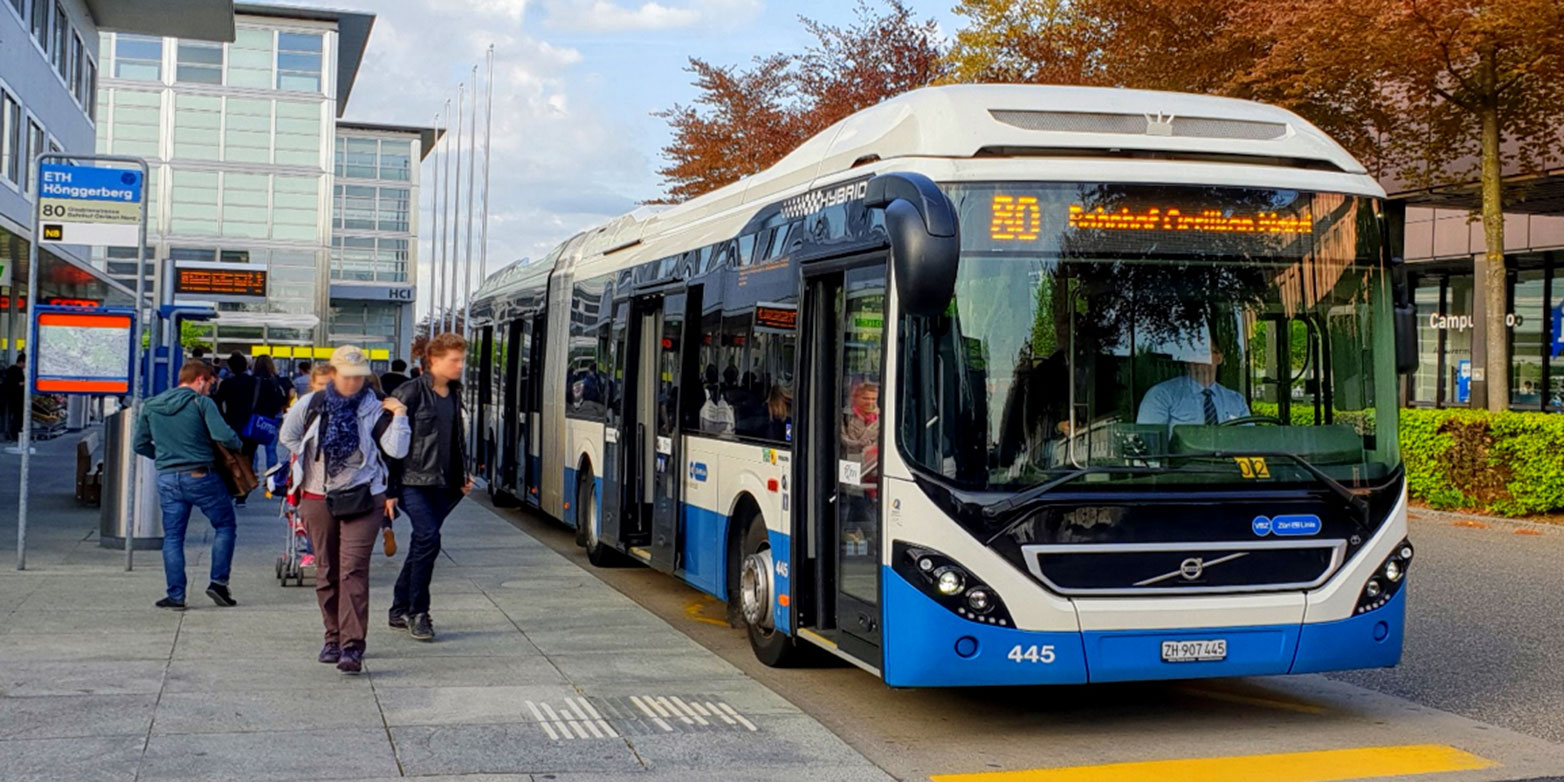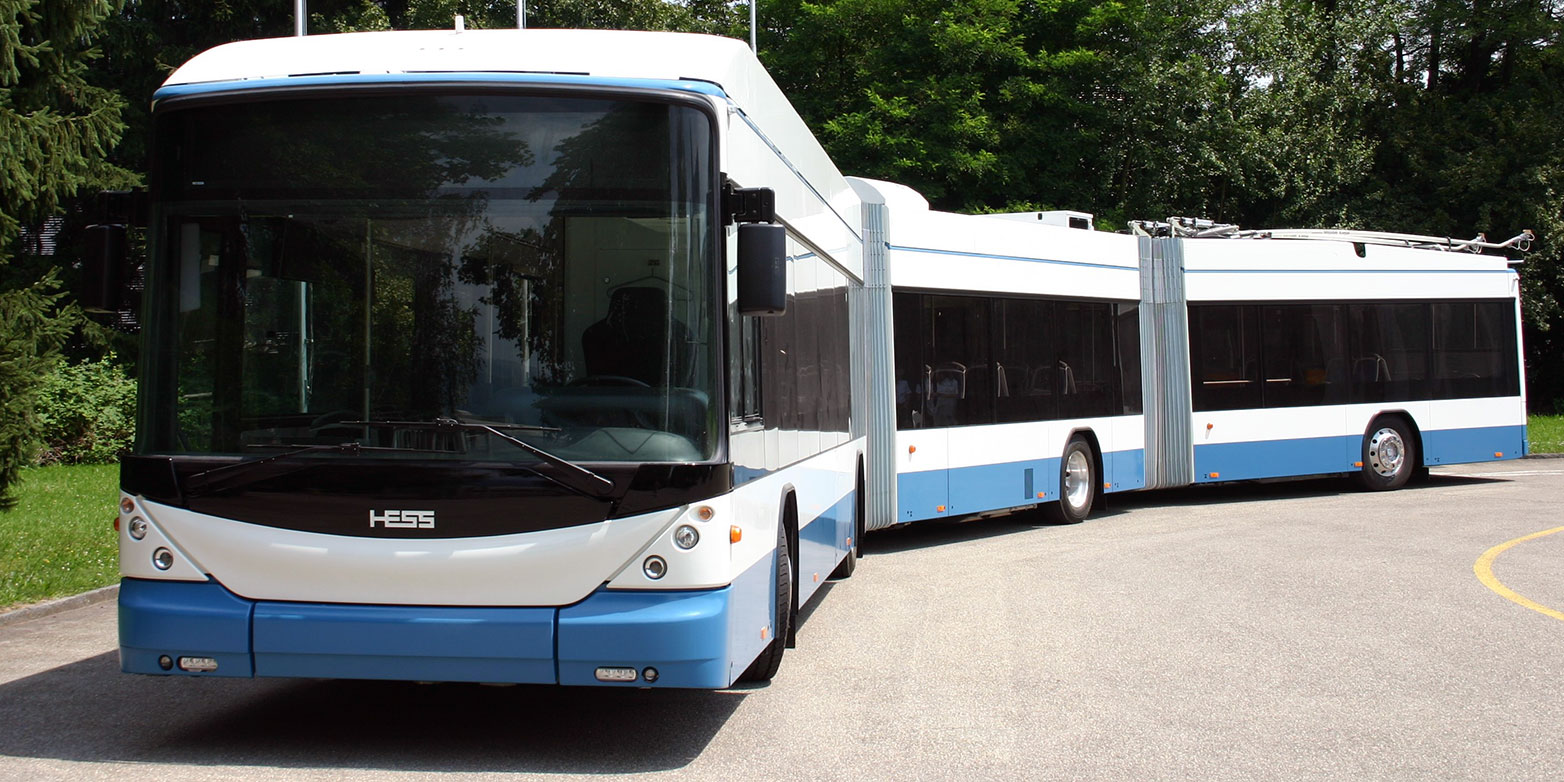More buses to Hönggerberg campus: additional journeys on the 80 bus
Pressure on the busy VBZ no. 80 bus route will be somewhat eased, starting in autumn. From 17 September 2018, additional buses will be added to the no. 80 route to the Hönggerberg campus. This has been arranged by agreement between ETH Zurich, public transport operator VBZ, and public transport authority ZVV.
From the start of the 2018 autumn semester on 17 September 2018, there will be more buses on the VBZ route no. 80 serving the Hönggerberg campus. The agreed timetable changes will apply during ETH Zurich’s term time and examination periods. At peak times on working days, buses will now run every 6 minutes instead of the current 6.7 to 7.5-minute frequency.
The new timetable will apply from Monday to Friday between 6:30 and 9:30 a.m. and 4:00 and 6:30 p.m., when the busses are particularly busy. This new timetable has been arranged by agreement between ETH Zurich, public transport operator VBZ, and cantonal public transport authority (ZVV).
In order to launch the improved service on the no. 80 bus route this year, ETH Zurich is fully financing the additional buses from 17 September 2018 to 13 December 2019, for a total of 241 days. This has been contractually agreed between ETH Zurich and ZVV, which is responsible for the strategic planning and financing of public transport in the canton of Zurich. VBZ will apply to ZVV to ensure the 6-minute frequency is integrated into the updated timetable in December 2019.
Concerns from locals and ETH taken seriously
The VBZ route no. 80 (Bahnhof Oerlikon — Triemslispital) is one of three VBZ bus routes (37, 69, and 80) that serve the Hönggerberg campus and connect it to Höngg and Affoltern, as well as important urban transport hubs such as the Altstetten and Oerlikon train stations and Bucheggplatz.
Along with the Zentrum campus, the Hönggerberg campus is one of ETH Zurich’s two main sites. These two locations are home to a wide range of teaching and research offerings and services. Around 78 per cent of all ETH members who study and work on the Hönggerberg campus commute via public transport. Only around 7 per cent travel by car. Currently there are capacity bottlenecks, especially at peak times, along with complaints from locals and ETH Zurich regarding the overloaded buses.
“We take the feedback seriously and are aware that the bus connections to Hönggerberg are reaching their limits in terms of capacity. That’s why we want to contribute to improving bus services”, says Ulrich Weidmann, whose responsibilities as ETH Zurich’s Vice President Human Resources and Infrastructure include real estate planning and mobility management at ETH Zurich. “I am especially delighted that ETH Zurich, VBZ, and ZVV have devised a solution together.”
“The more frequent buses over a much longer period than before will increase capacity along the no. 80 bus route by around 100–200 people per hour in each direction. At the same time, there will be better connections available on Glaubtenstrasse, as the 32 and 61/62 bus routes run every six minutes, too. The additional vehicles will also make the no. 80 route more robust. We are very pleased that we at VBZ are able to offer an improved service starting from this autumn semester”, says Johannes Eckert, area manager for the city of Zurich at VBZ.
Focus on long-term solutions
ETH Zurich works towards the sustainable development of its mobility solutions. This also includes collaboration on public transport. For example, ETH Zurich is also fully financing the ETH Link, which directly connects the Hönggerberg campus to the Zentrum campus in the city centre. The ETH Link transports more than 750,000 passengers every year and helps to relieve pressure on public transport services, such as the no. 69 bus route.
The medium- to long-term connections between ETH Zurich’s sites and the public transport network, as well as the necessary increases in capacity, are also discussed in regular meetings between ETH Zurich and VBZ. Over the next few years, ETH Zurich is planning a phased infill development of its Hönggerberg location to create an attractive campus with a city neighbourhood feel.
Meanwhile, the public transport providers VBZ and ZVV also have plans to electrify the VBZ bus routes nos. 69 and 80 in the medium-term. This would be financed via ZVV and the Swiss Confederation, then implemented by VBZ. The accompanying increase in capacity could also mean that – unlike today – double-articulated buses would also be used on the Hönggerberg route in the future. At present, standard articulated buses are driven on these routes. “Given the expected growth in the numbers of students and researchers at Hönggerberg, ETH Zurich is very grateful to VBZ and ZVV for this initiative”, says Ulrich Weidmann.

